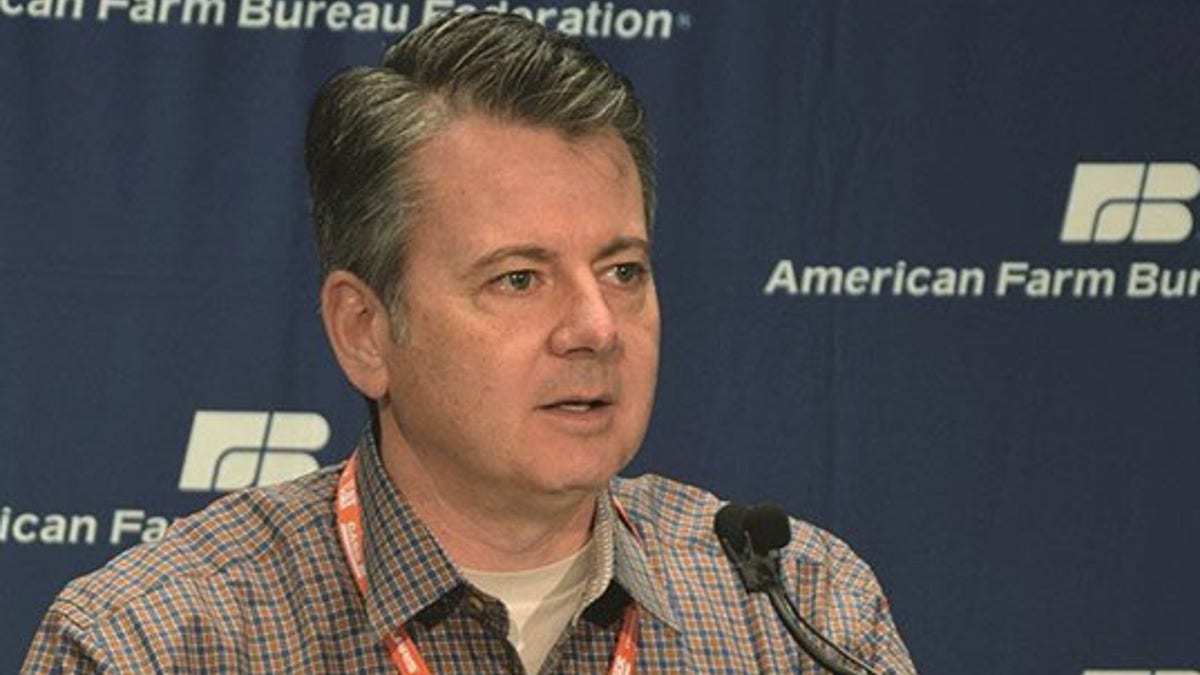California farmer on new order to promote agriculture
President Trump aims to reduce regulations
Even though President Trump issued a sweeping order to cut federal red tape earlier this year, a Northern California farmer is still facing a nearly $3 million fine for plowing his own land.
In what one observer called “a perfect poster child for the regulatory issues we need fixed,” John Duarte, owner of Duarte Nursery, bought more than 400 acres of land to grow wheat back in 2012. In February of the next year, after planting the wheat, the Army Corps of Engineers and the California Central Valley Regional Water Quality Control Board issued a cease-and-desist order, preventing Duarte him from harvesting his crop.

Duarte said the fine could cost him his business - and hundreds of employees their jobs. (American Farm Bureau)
Duarte, they said, had violated the Clean Water Act by not obtaining a permit to discharge dredged material into seasonal wetlands considered the property of the United States.
Duarte sued the Army Corps and the state.
“This is government bullying and retaliation for me filing a due process claim against them.”
“You cannot remove my pleasure to farm my property without some kind of due process that gives me a chance to explain and compare facts with you,” he told a radio show that caters to farmers.
The U.S. Attorney’s Office counter-sued Duarte Nursery to enforce the Clean Water Act violation. He now faces trial in Federal Court this August, and a fine of $2.8 million.
Duarte told Fox News he believes his real transgression was fighting back after being denied the right to harvest.
“This is government bullying and retaliation for me filing a due process claim against them,” he said.
Legal papers in the case are laden with language about tilling implements and techniques, land topography and arguments over how deep soil was plowed.
But Duarte and his supporters say the crux of the matter is property rights, and whether the Trump administration will be able to roll back an intrusive and vindictive bureaucracy. In February, President Trump signed an executive order “to lower regulatory burdens on the American people by implementing and enforcing regulatory reform.” Duarte hoped he had been rescued.
“This is the type of regulatory abuse we think President Trump’s Executive Order is meant to fix,” Ellen Steen, general counsel for the American Farm Bureau Federation, told Fox News. “These are not brand new regulations. It is enforcing regulations that have been on the books for decades that are written broadly and vaguely that allow the Army Corp to enforce these major penalties.”
Last week, House Committee on Agriculture Chairman Michael Conaway, R-Texas, and House Judiciary Committee Chairman Bob Goodlatte, R-Va., co-wrote a letter to Attorney General Jeff Sessions about the Duarte case.
“The prosecution of Mr. Duarte raises concerns that the Congressional intent behind the farming exemptions in the statute is misunderstood,” read the letter. “Specifically, it is the Agriculture Committee’s view that even occasional farm activities, including grazing, qualify as “normal” farming under the statutory exemption.”
According to Conaway, “Mr. Duarte’s case clearly highlights the need to keep the federal government out of America’s backyards, fields and ditches.”
The Army Corps of Engineers told Fox News they cannot comment on matters in litigation and referred queries to the Department of Justice. Citing the same reason, the DOJ also declined to speak about the case.
The farmland Duarte is battling with the government over is located in Republican Rep. Doug LaMalfa’s district. His chief of staff, Mark Spannagel, said Trump’s order did not give Congress the power to simply roll back regulations.
“It can start the process of rescinding, but it is not a magic wand,” he said.
Despite Trump’s order, agencies have pushed forward, Spannagel said.
“This flawed interpretation of the Clean Water Act started in the Sacramento Army Corps and has spread,” he said. “There are other cases in Northern California were the farmers settled because they couldn't afford to fight any longer.”
Duarte said the massive fine puts more than just his family in financial jeopardy.
“Right now, I run a profitable business,” he said. “I have 500-600 employees who rely on my company. If this doesn’t get cleaned up very quickly, we will most likely face insolvency.”






















